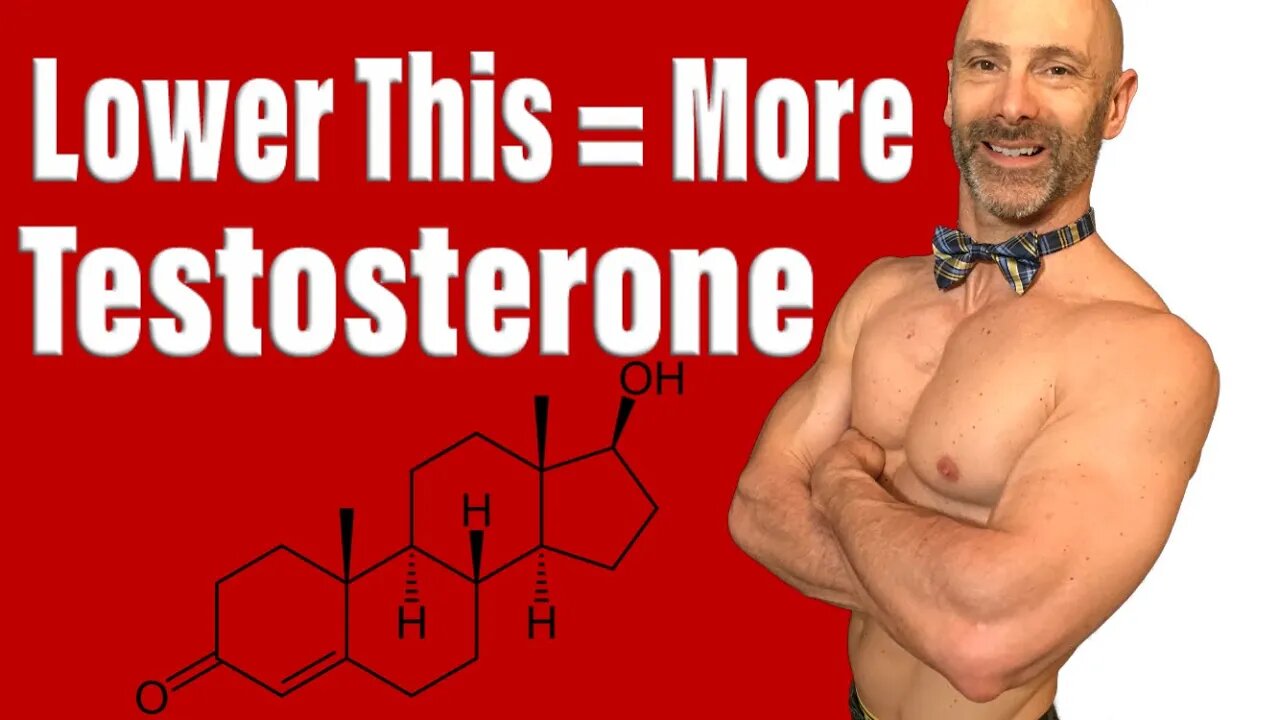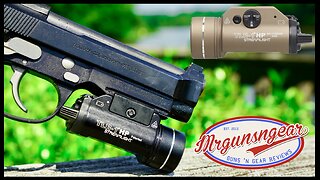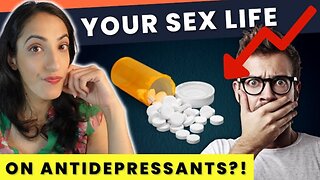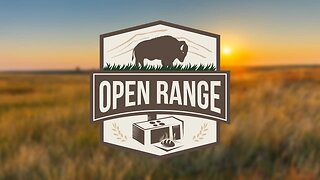Premium Only Content

Sex Hormone Binding Globulin And Our Quest To Build Muscle
Sex hormone-binding globulin and our quest to build muscle.
Check your testosterone levels from home. Just click this link http://trylgc.com/laurence and receive 20% off with code: LAURENCE20 and for the essential vitamin test use this link: http://trylgc.com/laurencevitamin along with the discount code LAURENCE20 I receive commissions on referrals to LetsGetChecked. I only recommend services I know and trust.
If you are interested in losing body fat and adding muscle, please email me at 1shark1bite@gmail.com for information on my personal training services.
Facebook; https://www.facebook.com/Fit-and-50-548844435514900/
My Amazon page link; https://www.amazon.com/shop/fitand50
Today we are going to find out whether or not supplementing with vitamin D and boron reduced my sex hormone-binding globulin and as a result, increasing my bioavailable or free testosterone as this is what the body uses to help build new muscle.
I got my last testosterone test through showed my testosterone level at 29.6 nanomoles per litre or 853.7 Nanograms per decaliter. Which is very good and above average, but unfortunately that wasn’t the whole picture. My SHBG levels or sex hormone-binding globulin was also high, almost above the normal range and this isn’t particularly good as it binds to testosterone and limits where it can be used.
The free androgen index indicates how much bioavailable testosterone we have for building muscle and for other body functions. As a result of the high SHBG mine was at the low end of normal.
A lot of articles I have read say that when SHBG attaches to testosterone it makes it effectively useless to the body, but this isn’t entirely true. There are a few places in the body that has receptors for SHBG and can use this testosterone, but our muscles aren’t one of them. So the bound testosterone can’t be used to build muscle. SHBG is still in many ways understudied and as a result there a lot we don’t know about how this hormone functions.
So after a bit of research, I decide to try supplementing with vitamin D which I was sure would be low,
I started supplementing with 4,000 IU’s a day and when I got my testosterone retested I also got my vitamin D level checked I did this with LetsGetChecked as they have a test for vitamin D, B12 and folate.
If you are interested in getting any of the tests done that I talk about in this video I will leave the links in the top comment and in the description with my discount code for 20% off your purchase.
This test showed that my vitamin D and B12 are in the normal range. Unfortunately, there was a problem with the sample for the folate. So they sent me another test kit so I could redo it.
So knowing that my vitamin D is good let’s see what is happening with my testosterone.
So my testosterone is a little higher on this test, But when you look at my SHBG I am now above normal. The first thing that comes to mind with this high level is whether or not my liver or thyroid is functioning properly and it would be good to get these tested.
Now I got my blood work done by my doctor and in that test, my SHBG was also high, but the tests on my liver and thyroid came back with everything being normal.
I compared what my doctor tested for to LetsGetChecked’s test for liver and thyroid and for the liver they test pretty much all the same things, but for my thyroid LetsGetChecked is a little more thorough.
I would say the supplementing with boron was a bust. I was taking 9mg per day as I had read some studies showing some impressive results in lowering SHBG. But as with most supplements if you aren’t deficient in it taking more than your body needs isn’t going to change anything. So I’m going to back it off to 3mg a day.
Something did change from the time I took my last test to this one and that was the intensity of my workouts.
Before we go any farther want to clarify for most the best way to increase your T levels is to exercise and lose body fat, but when you take it to the extreme like an excessive calorie deficit or exercising to the point of overtraining your SHBG will increase disproportionately to testosterone.
I may not be fully recovered from one workout to the next. In particular with my running and my leg training. I am now running much longer and pushing much harder, without decreasing the intensity of my weight training.
This brings me to the next supplement I am going to try, Magnesium. It has been shown to aid in recovery, boost testosterone and lower SHBG. It is one of the best-researched minerals out there. I’ll leave a link to an article from the international journal of endocrinology on the relationship between magnesium and testosterone in the description as it covers a lot of studies on us guys over 50.
-
 5:31
5:31
Fit and 50
2 years ago $0.07 earnedHow Much Food to Build Muscle and Lose Fat (Including What I Eat)
5922 -
 1:48:31
1:48:31
Squaring The Circle, A Randall Carlson Podcast
17 hours agoMEGA Tsunamis and the formation of our World ft. Dr. Dallas Abbot
13.5K4 -
 13:13
13:13
Mrgunsngear
14 hours ago $1.49 earnedStreamlight TLR-1 HP Review: Can It Dethrone Surefire?
8.59K8 -
 6:53
6:53
Rena Malik, M.D.
23 hours ago $0.87 earnedWhy Antidepressants Wreak Havoc on Your Sex Life?! | Urologist Explains How to Boost your Libido
11K4 -
 1:00:00
1:00:00
BEK TV
2 days agoMIKE MOTSCHENBACHER ON NORTH DAKOTA POLITICS, TEA PARTY ROOTS, AND THE 2026 ELECTION
9.6K -
 15:31
15:31
Breaking Points
1 day agoIs Trump Planning VENEZUELA Regime Change?
33.1K20 -
 2:06:05
2:06:05
"What Is Money?" Show
2 days agoTrump Family Bitcoin Bet Will Trigger Nation-State FOMO w/ Matt Prusak (CEO American Bitcoin)
13.4K -
 1:04:36
1:04:36
Dialogue works
3 days ago $4.50 earnedMohammad Marandi: Iran Just Gave Israel a FINAL Warning…
23.4K6 -
 9:20
9:20
daniellesmithab
1 day ago3 Bad Laws
23.3K8 -
 9:22
9:22
MattMorseTV
19 hours ago $11.63 earnedINDIA just made a BIG MISTAKE.
65.1K60